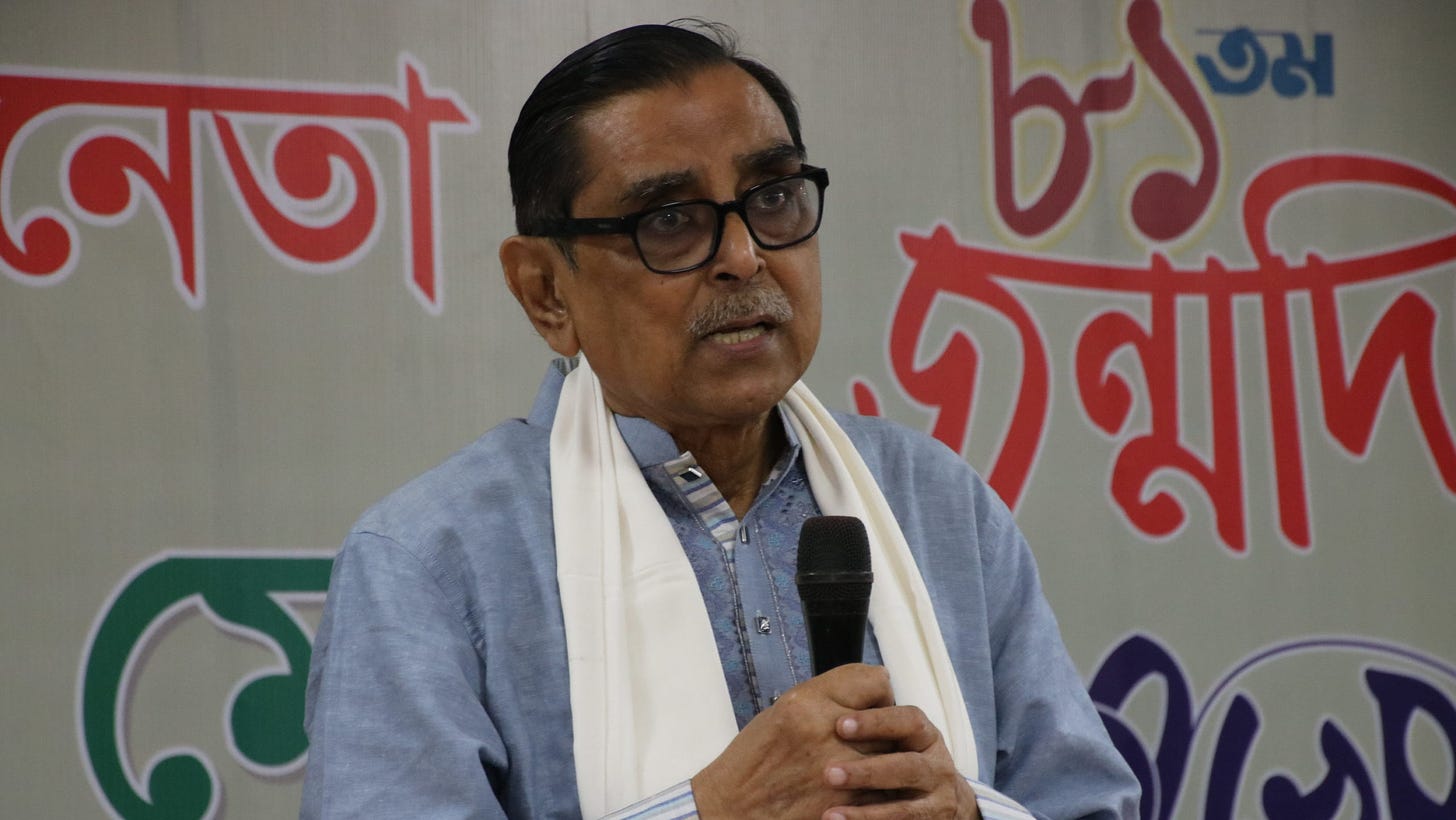On Rashed Khan Menon's Arrest
Workers Party of Bangladesh Claims Menon’s Arrest Is Political Revenge
Left parties and groups in Bangladesh condemned the arrest of former member of parliament and left leader Rashed Khan Menon last week by the interim government. The groups called the arrest a political revenge and demanded his immediate release.
The President of the Workers Party of Bangladesh (WPB), Khan (81), was arrested at his home on Thursday 22 August. The following day, a court in Dhaka placed him on a five-day judicial remand in connection with a case related to the death of a man during the quota reform protests.
According to The Daily Star, the case against Khan was filed by the relatives of the deceased, a trader named Abdul Wadud (45). Wadud was killed during clashes between security forces and protesters in Dhaka on 19 July.
The WPB said Khan’s arrest was a “political vendetta,” emphasizing that he neither held an administrative role in Sheikh Hasina’s ousted government nor opposed the student movement’s demand for government job quota reforms, which were at the center of the demonstrations ongoing at the time of Wadud’s death.
The interim government led by Muhammad Yunus, which took over following the resignation of the previous administration, has filed numerous cases against former Prime Minister Sheikh Hasina and her cabinet ministers. They are being held directly responsible for the deaths of hundreds of protesters in clashes with security forces between mid-July and Hasina’s resignation at the beginning of August.
Khan has been named as a co-accused in several of these cases, although he was not an government official at the time. Previously, he served as the Minister of Civil Aviation, Tourism, and Social Welfare. In the latest administration, the WPB was part of a 14-party alliance led by Hasina’s Awami League. After being elected as the party’s sole representative in parliament, Khan was appointed President of the Parliamentary Standing Committee of the Ministry of Social Welfare, which is not an administrative post.
As president of WPB, Khan supported the demands for reforms in the quota system raised by the students since the beginning of July. The WPB also condemned the violence that broke out that month and called for justice for the students killed during the clashes. Despite their support for the demonstrations, the WPB’s offices were attacked and vandalized after mobilizations began following Hasina’s departure.
In a statement issued on Friday, the Jatiya Sramik Federation, the workers’ wing of the WPB, noted Khan’s legacy in the struggle for democracy and human rights in Bangladesh, including during the military dictatorship. The statement emphasizes that Khan has been persecuted in the past for speaking out against injustice. Highlighting Khan’s ailing health, the trade union federation asserted that he “should not become a victim of political vendetta” and demanded his “immediate and unconditional release.”
Similarly, the WPB’s student wing, Bangladesh Chatra Maitri, condemned Khan’s arrest, calling the cases against him false and politically motivated, and demanded his immediate release.




